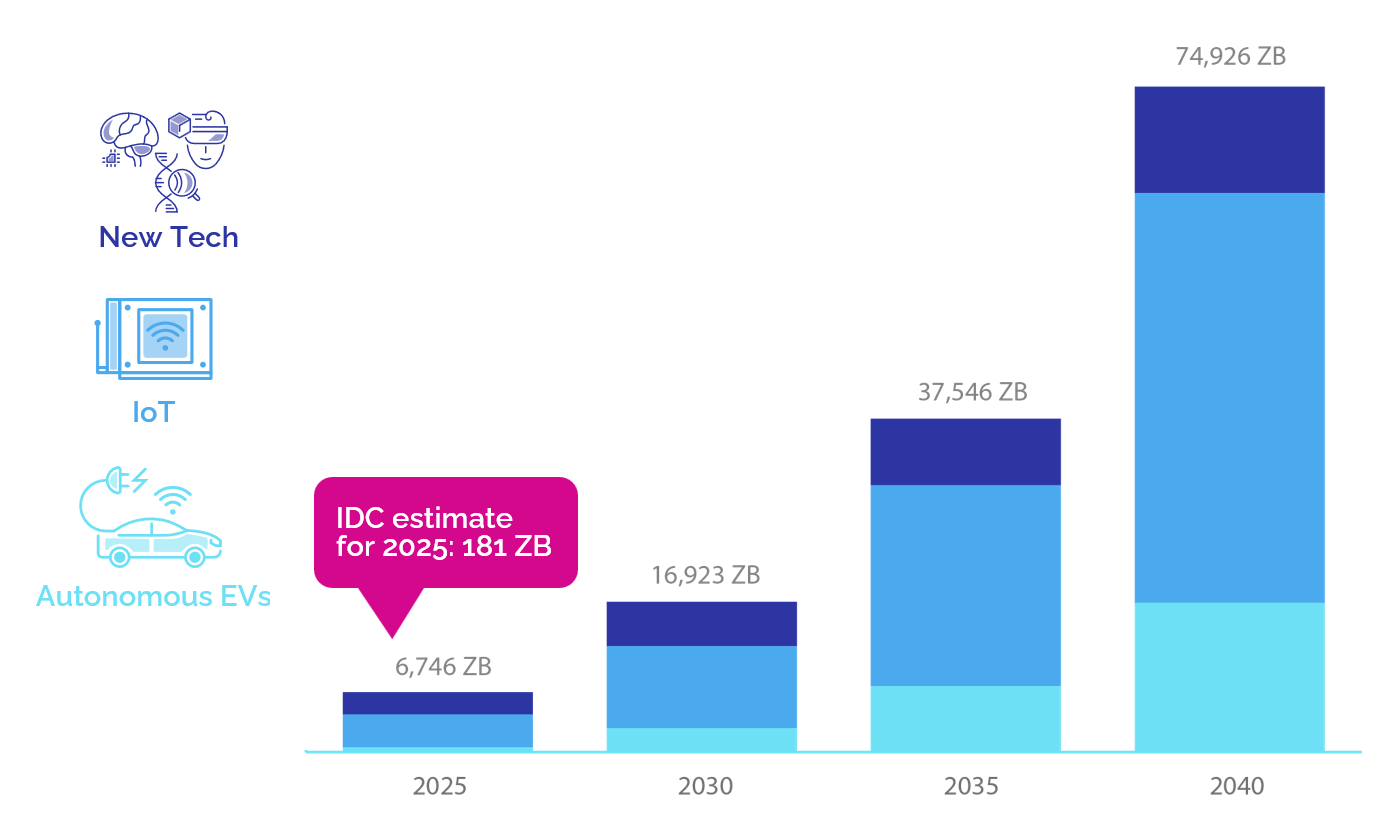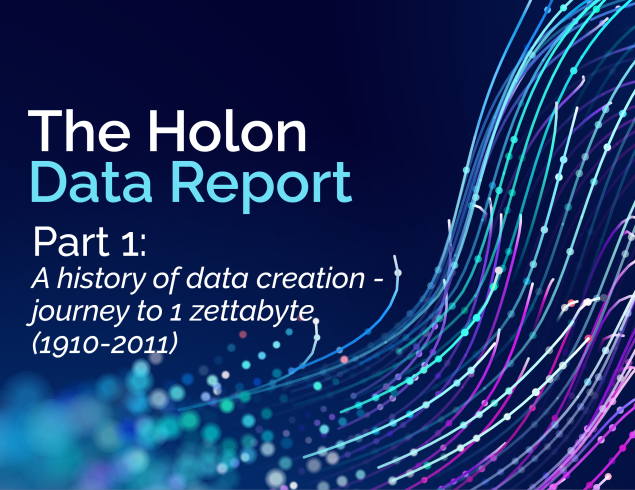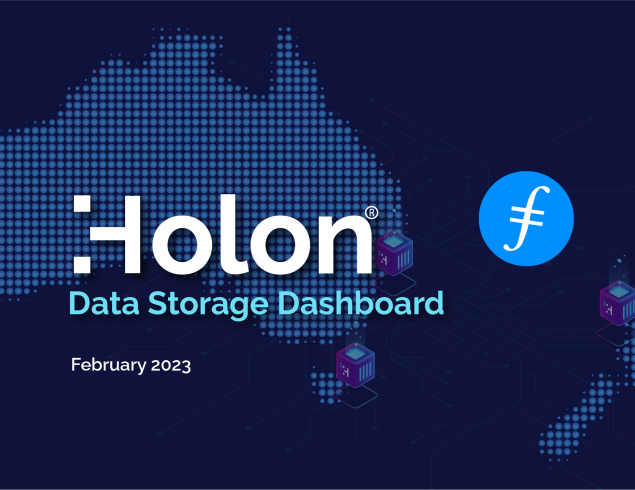The three biggest challenges for the future of data storage
In this digital age, data is the lifeblood of progress, propelling innovation and transforming industries. As we hurtle through the second half of 2023 (yes, already), data storage stands at a crossroads, grappling with what we believe to be a trio of challenges that demand your utmost attention: security, complexity, and efficiency.
As we attempt to unravel this complex world, Web 3.0 decentralized storage and Filecoin offer beacons of hope.
1. Security: A constant battle amidst a sea of threats
As we continue to generate (and hoard) a staggering amount of data, the sanctity of that information becomes paramount. The digital realm is rife with adversaries, lurking in the shadows, eager to breach our defences and pilfer valuable data. From sophisticated cybercriminals to nation-state actors, the threats are diverse and ever-evolving.
Protecting data from these malevolent forces is an ongoing cat-and-mouse game. Encryption, firewalls, and robust access controls serve as the first line of defence, along with recent developments like data ‘zoos’ and even self destructing chips.
But, as we strive to fortify our digital fortresses, hackers adapt, slipping through the tiniest crevices in our armour.
2. Complexity: The intricate web of data storage architecture
In this intricate tapestry of data storage, complexity weaves its threads, challenging even the most seasoned of technicians – including the best and brightest here at Holon. The proliferation of data sources, ranging from autonomous EVs to IoT devices, to AI, adds new dimensions to the puzzle. Data is generated and growing at a dizzying pace (Figure 1), accumulating in the cloud, on-premises servers, and various other repositories.
Managing this labyrinthine of infrastructure demands expertise and precision. Integration and compatibility issues haunt IT departments, while siloed data creates inefficiencies and redundancies. Untangling this complex web is essential to ensure seamless data flow and accessibility.
Figure 1: Global data generation estimates, 2025 to 2040
 Source: Holon
Source: Holon
Note the International Data Corporation (IDC) estimate for 2025, made in 2018, which Holon believes to be far too low. For more on our thesis and estimates, please see The Holon Data Report, Part 4.
3. Efficiency: The holy grail of data storage
Amidst this tsunami of data, efficiency emerges as a life raft, a challenge that tantalizes with the promise of streamlined operations and cost savings. Traditional storage solutions, while reliable, can be resource-intensive, consuming vast amounts of power and physical space. In a world conscious of its ecological footprint, these inefficiencies are untenable.
Enter Web 3.0 decentralized storage, the hero of this journey. By leveraging blockchain technology, these initiatives offer a glimpse of an alternate reality – where data is distributed across a network of nodes, lightening the load on centralized servers and loosening the grip of corporate Big Data. And the gift-with-purchase: energy-efficient, environmentally-friendly, 100% green data storage, holding the potential to revolutionize our digital landscape, responsibly.
“As we continue to generate (and hoard) a staggering amount of data, the sanctity of that information becomes paramount.”
Solution: Filecoin – a glimmer of hope
Filecoin, an ambitious project at the forefront of decentralized storage, seeks to unravel the data storage conundrum. By creating a marketplace for storage capacity, Filecoin incentivizes individuals and organizations to contribute resources to the network. In this decentralized protocol, data is encrypted, dispersed, and replicated across nodes, safeguarding it from the clutches of the oligopolistic status quo.
Yet, as with any groundbreaking endeavour, Filecoin faces challenges of its own. Scalability remains a puzzle, as the demand for data storage continues to surge. Balancing incentives, ensuring network stability, and encouraging widespread adoption present formidable hurdles on the road to decentralized storage utopia.
In the words of Steve McQueen, ‘So far, so good.’
Charting the course ahead: A balancing act
As we navigate the future of data storage, this trifecta of challenges demand a delicate balancing act. The imperatives of safeguarding sensitive data, streamlining operations, and reducing our ecological impact coalesce in a symphony of complexity. Web 3.0 decentralized storage and Filecoin offer glimpses of a brighter future, but the path ahead requires measured steps and relentless innovation.
So, fellow digital travellers, let us move confidently into the future of data storage, where security and efficiency dance in a delicate embrace, and complexity beckons us to solve its enigmas. As we embrace the promise of decentralized storage, let us keep our eyes on the horizon, brimming with potential and the allure of progress, where some of the world’s finest problem solvers are on the case.
So far, so good indeed.
Disclaimer: This Article has been prepared by Holon Global Investments Limited ABN 60 129 237 592. Holon Global Innovations Pty Ltd (“HGI”) is a wholly owned subsidiary of Holon Global Investments Limited (together “Holon”). HGI is a Filecoin (FIL) Storage Provider and is positioned as a major player in the FIL decentralised data storage arena. FIL Storage Providers are rewarded in FIL for the provision of data storage capacity. Holon, its officers, employees and agents believe that the information in this material and the sources on which the information is based (which may be sourced from third parties) are correct as at the date of publication. While every care has been taken in the preparation of this material, no warranty of accuracy or reliability is given and no responsibility for this information is accepted by Holon, its officers, employees or agents. Except where contrary to law, Holon excludes all liability for this information.





